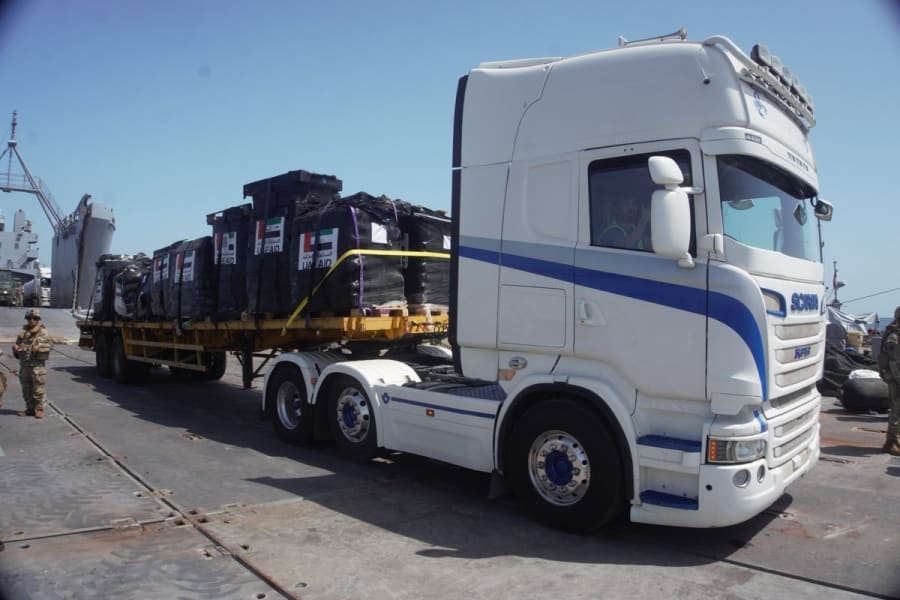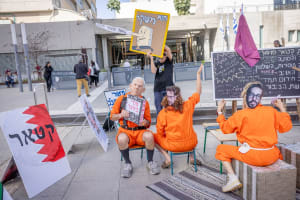US increases humanitarian aid to Gaza and West Bank to $674 million amid war
Secretary of State Blinken announces $404 million increase in Gaza support

The United States announced on Tuesday that it would provide an additional $404 million in humanitarian aid to support Palestinian civilians in Gaza and the West Bank, bringing the total amount of aid to $674 million since the beginning of the war between Israel and the Hamas terrorist organization.
"As the largest single-country humanitarian donor to the Palestinian people, we recognize the urgent need for more assistance to reach civilians given the dire humanitarian conditions and call on all donors to support life-saving operations for Palestinians in Gaza and the region," the U.S. State Department announced in a statement.
The funding "will provide essential support, including food, safe drinking water, healthcare, education, shelter and psychosocial support to vulnerable Palestinians affected by the ongoing battle."
"We urge other donors to contribute to the humanitarian response in Gaza and the region, increase support to those affected by the conflict, and work together to find lasting solutions to the crisis," the statement added.
While speaking at a fundraising conference in Jordan, U.S. Secretary of State Antony Blinken criticized countries that have voiced concern about the humanitarian crisis in Gaza but not backed it up with aid.
Blinken emphasized the urgent need for such assistance, noting that only one-third of the current United Nations appeal for Gaza is funded.
"Every country can help fill this gap," Blinken said about the remaining $2.3 billion. "Yet some who’ve expressed great concern over the suffering of Palestinian people in Gaza, including countries with the capacity to give a lot, have provided very little or nothing at all. It is time for everyone – everyone – to step up."
The state secretary also detailed the steps the U.S. has taken to press Israel to improve humanitarian conditions in Gaza. These measures include expediting the inspection of aid trucks, reducing the list of prohibited goods, increasing visas for aid workers, improving communication with aid groups to minimize conflict, expanding authorizations of medical equipment for hospitals, and repairing water and sanitation systems.
Blinken acknowledged that Israel has taken steps to improve the humanitarian situation by opening additional crossings into Gaza but stressed that further action is required to reduce civilian casualties.
In his statement, Blinken emphasized the lack of access to clean drinking water, widespread hunger, and the destruction of most of Gaza’s sanitation system and hospitals.
"Ninety-five percent of people there cannot access clean drinking water. Hunger is everywhere. Virtually everyone in Gaza depends on aid to survive. Most of Gaza’s sanitation system has been destroyed. Fewer than a dozen of Gaza’s 40 hospitals are open, and more than 270 humanitarian workers have been killed," he said.
Blinken reiterated the call for an immediate and lasting ceasefire, urging all parties to press Hamas to accept Israel’s latest hostage deal proposal.
"The single most effective step we can take to address the urgent humanitarian challenges in Gaza is to reach an immediate – and ultimately, enduring – ceasefire," he said.
“Today, as we gather, one – and only one – thing stands in the way of this deal happening, and that’s Hamas.”
He continued, “So, my primary and first message today to every government, to every multilateral institution, to every humanitarian organization that wants to relieve the massive suffering in Gaza: Get Hamas to take the deal. Press them publicly. Press them privately.”
Blinken shared stories of Palestinian children impacted by the conflict. "These three children – Abed, Fadi, Dunya – and all the Palestinian civilians suffering in Gaza, we know they’re not numbers. They’re not abstractions. They’re human beings," he said.
"They’re children, they’re women, they’re men who all want the same things that we want for ourselves and for our loved ones, just like the people who were murdered in Israel on October 7th, just like the hostages who continue to be held in Gaza to this day."
As part of an international effort to increase humanitarian aid to Gaza, the U.S. built a pier on the shore of the Gaza Strip in March. According to a UN official last month, nearly 70% of the humanitarian aid at the pier had not reached the World Food Programme warehouse in Deir al-Balah.
Eleven out of 16 aid trucks were “cleaned out by Palestinians” on the journey to the warehouse on Saturday. “They [armed terrorists] just basically mounted on the trucks and helped themselves to some of the food parcels,” an official said.

The All Israel News Staff is a team of journalists in Israel.
You might also like to read this:














